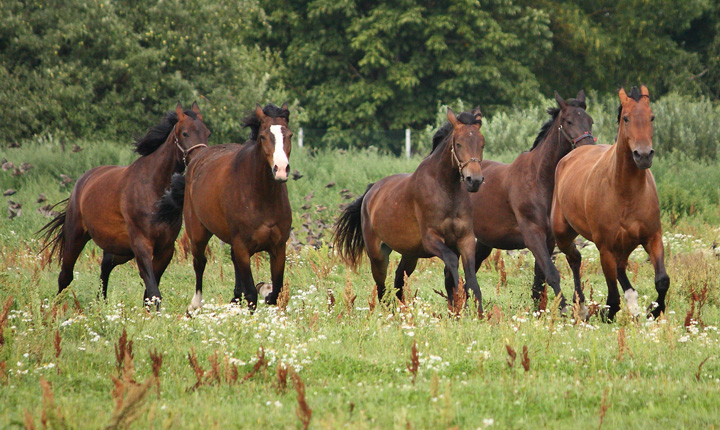2200002 - Equine Behaviour
Course Description

Achieve a better understanding of why horses do the things they do and how to provide the best environment possible for their well-being. Gain insight into horse behaviour, through their eyes, and learn how to properly communicate with them to ensure appropriate behaviour.
By reviewing and discussing the most recent research on equine behaviour—particularly as it relates to welfare, environment and handling—you will be able to improve your own training, riding and horse ownership.
This course is designed for horse owners, trainers, grooms, breeders, stable employees, veterinary technicians, industry representatives, coaches, and individuals with an interest in horses.
Learning Outcomes
The goal of the course is to enable you to understand the important concepts of equine behaviour and how they relate to the care and welfare of horses.
Upon successful completion of this course, you should be able to:
- Examine the role of ethology and equitation science in the study of equine behaviour
- Describe innate behaviours of the horse and discuss how domestication and modern management practices influence the horse's behaviour and health
- Examine communication between horses and human-horse communication and its relevance for improving human safety and horse welfare
- Explore the etiology and risk factors of unwelcome equine behaviours and stereotypes
- Examine learning theory, including associative and non-associative learning, and how it can be applied theoretically in horse handling and training
- Explore equine research and identify and explain primary sources pertinent to topics in horse behaviour
Course Topics
- Introduction to ethology
- Perception
- Social organization and behaviour
- Ingestive and eliminative behaviours
- Locomotory behaviour
- Communication and maintenance behaviours
- Learning theory
- Application of learning theory
- Equitation science & unwelcome behaviours
- Foundation training
- Sterotypic behaviours
- Research and human behaviour change
Additional Requirements
- This course is intended for adult learners who are at least 18 years of age.
- There are no prerequisites for this course.
- You may take this as an individual course or choose to complete one of our equine certificates or the diploma.*
- You do not need access to a horse to participate and be successful in this course.
- You can expect to spend 6-10 hours per week to complete the course material, discussions and assignments.
*If you are a certificate or diploma program student, we recommend that you complete Management of the Equine Environment as your first course. This course is offered every semester and provides you with a good foundation to study equine behaviour.
Assessment
| Assessment Item | Weight |
|---|---|
| Unit Quizzes (3 x 5%) | 15% |
| Observation of Horse Behaviour | 15% |
| Focused Discussions | 5% |
| Guest Speaker Discussion (2 x 5%) | 10% |
| Learning Theory Poster | 25% |
| Equine Behaviour Case Study | 30% |
| Total | 100% |
Please note that the course assessment is subject to change.
Sponsoring Partner
Applies Towards the Following Certificates
- Diploma in Equine Studies : Required Courses
- Equine Science Certificate : Electives
- Equine Welfare Certificate : Electives
Technical Requirements
You are responsible for ensuring that your computer system meets the necessary system requirements. Use the browser check tool to ensure your browser settings are compatible and up to date (results will be displayed in a new browser window).
*Course details are subject to change.

